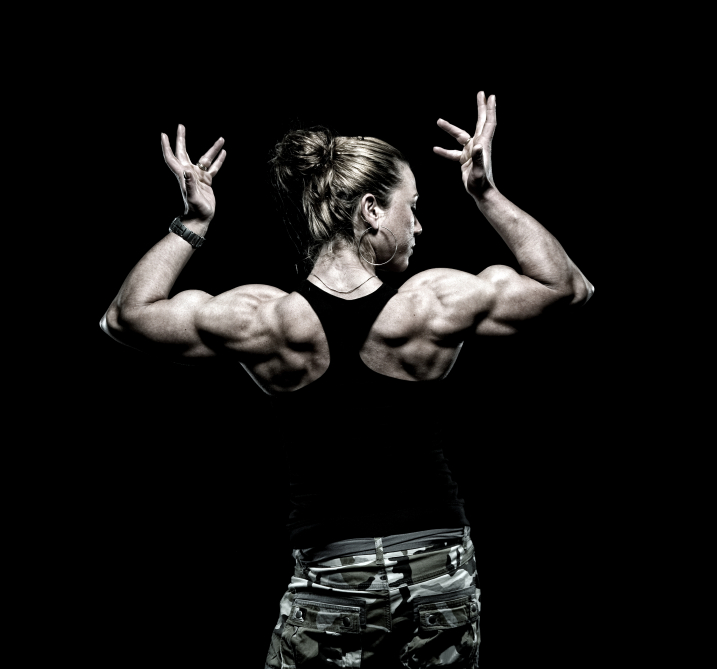“Bigorexia” Can Affect Both Men and Women

Author: Shernide Delva
For one woman, her muscles are not just for aesthetics, they are her body of armor. Rene Campbell, 38, discovered her passion for bodybuilding after fighting to overcome her body insecurities. She was sick of obsessing about being skinny and started bodybuilding instead.
“I’m a lot more comfortable and a lot more confident in the way I look now,” she said in a video clip from The Guardian.
Campbell transitioned from a triathlete to a professional bodybuilder after discovering that the increase of muscle mass made her feel like she had a body of armor protecting her. However, soon her desire for a larger muscle mass became more than a lifestyle but an obsession.
We know men get eating disorders, but this is a bit different. The condition is known as muscle dysmorphia or “bigorexia” and it affects 1 in 10 males however women can be affected as well. Bigorexia is the opposite of anorexia. While anorexics focus on getting smaller, those with muscle dysmorphia just want to get bigger and bigger… and bigger.
There is little research done on bigorexia. According to the disorders definition of the U.K’s McCallum Place eating disorder treatment center website, those who suffer from the condition are professional body builders or men and women who compete in body building competitions.
The intense focus and determination required for the daily weight training routine, the diets, the chicken in the bags is comparable to the compulsive nature of anorexia. In Campbell’s case, she developed OCD traits because, as she explained, ““How else are you going to be very regimented and disciplined?”
Of course, it is great to be disciplined with any lifestyle change. Learning how to eat healthy and exercise requires a new frame of mind. However, putting your diet and body image over anything else in your life can be extremely unhealthy. Setting goals that are unattainable can result in similar emotional traumas in the same way that anorexia does. Many believe that anorexia is about control. Bodybuilding is about control too. Are people with bigorexia simply swapping eating disorders?
Bigorexia has both emotional and physical consequences. Campbell described how bodybuilding took over her social life and how she missed social events with her family and important occasions like birthdays and anniversaries. These habits are serious signs of eating disorder behavior.
Bodybuilding can also be detrimental to your health. Campbell went on to say that after obsessing over becoming bigger and constantly training, her body began to give out:
“There’s a huge amount of stress that you put on your body with the supplements that you take in, the extreme of the dieting and training—it was too much for my system,” she said.
Campbell was told to reduce her muscle mass and stop lifting weight for her own well-being. But she cannot stop. It consumes her life every day.
“Having muscle is something I choose to have, it’s something that I strive for and it’s what I want. I certainly wouldn’t stop training because that’s a big part of me, it’s a big part of my life now,” she says in the video.
From my experience with an eating disorder, I know what it is like to have trouble imagining how life can be without obsessing over your weight and the food you put in your body. But letting go of that compulsiveness finally allows you to live and not obsess. Life should not be about obsession. Doing things in moderation is a better way to thrive.
Whether its anorexia or bigorexia, taking charge of your health is just as important as what you see in the mirror. If you’re suffering, maybe it’s time you look within. If you or someone you love is struggling with substance abuse or addiction, please call toll-free 1-800-777-9588.
